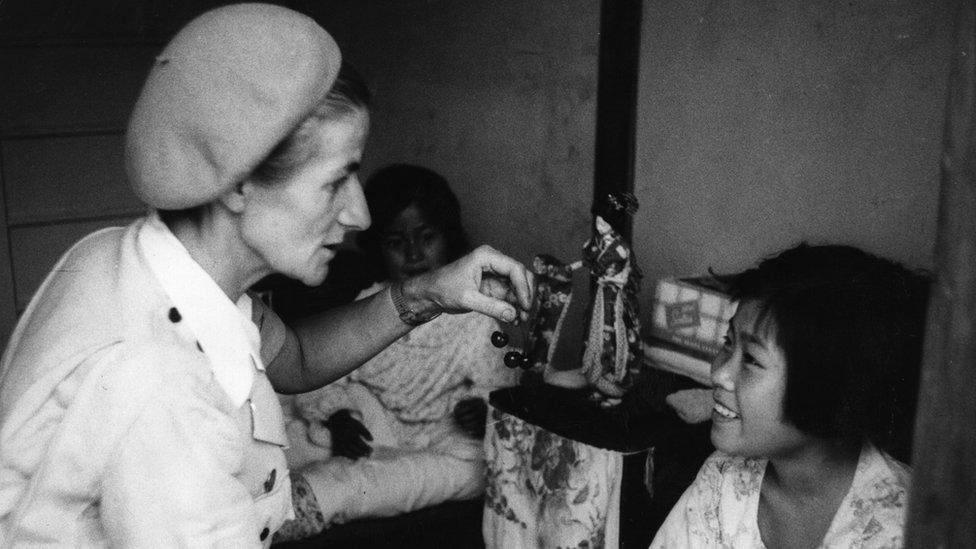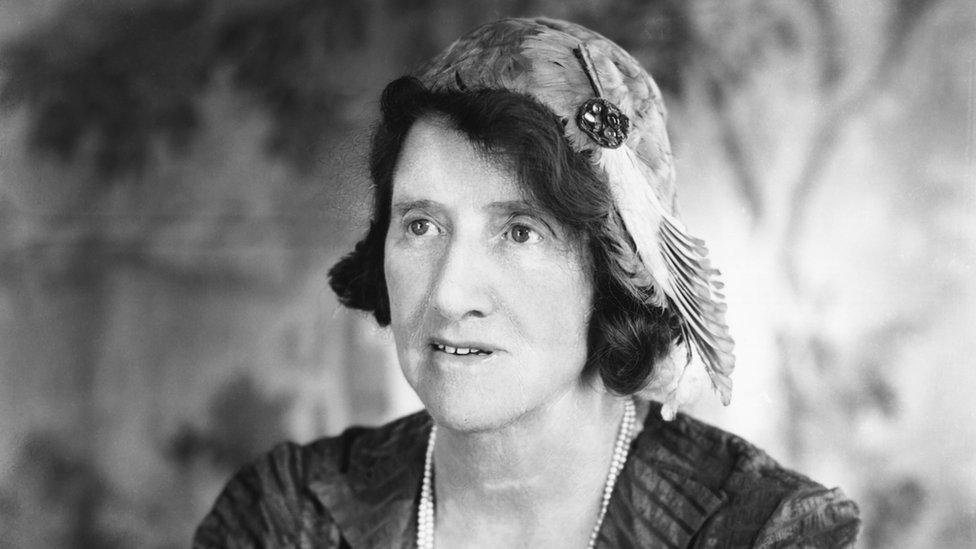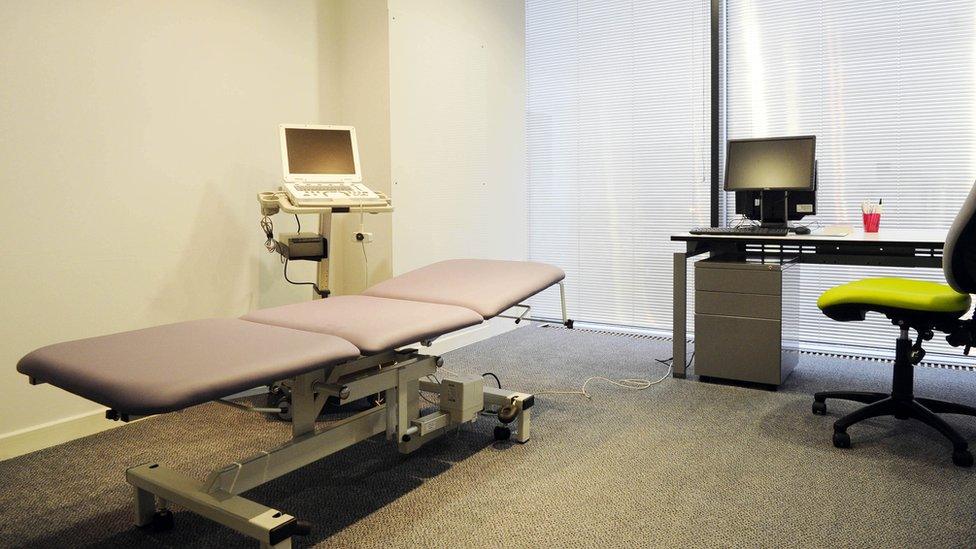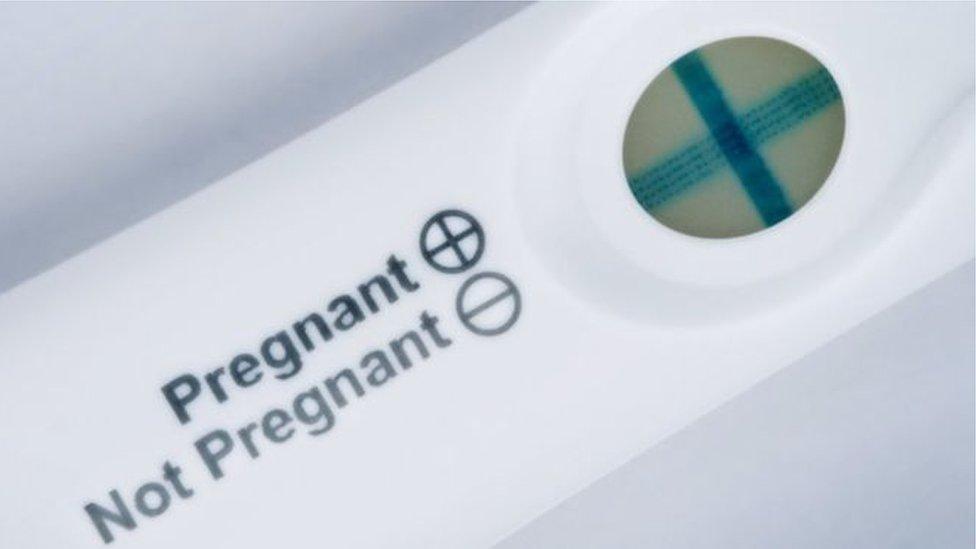Abortion provider changes name over Marie Stopes eugenics link
- Published

Marie Stopes, pictured around 1955, founded the first birth control clinic in Britain and later focussed on the needs of the developing world
A leading abortion provider has changed its name to break ties with Marie Stopes, the controversial birth control pioneer who believed in the creation of a super race.
Marie Stopes International, which provides contraception and abortions to women and girls in 37 countries, is now known as MSI Reproductive Choices.
The charity said her views on eugenics were in "stark contrast" to its values.
It added the events of 2020 reaffirmed a name change was the right decision.
Marie Stopes set up Britain's first birth control clinic in 1921 in Holloway, north London, despite medical and religious opposition.
The Marie Stopes Mothers' Clinic, which gave women advice and contraception, later moved to Whitfield Street, in central London.
In 1976, doctor Tim Black heard the clinic was in financial difficulty and bought the lease to the building, thereby co-founding the modern organisation and the first of more than 600 Marie Stopes International clinics around the world.
MSI Reproductive Choices said Stopes' legacy has become "deeply entangled" with her views on eugenics and wanted to address the "understandable misapprehensions" that the charity had a meaningful connection to her.
Eugenics is the study of the selective breeding of humans to increase heritable characteristics, which are considered desirable.
Stopes was a member of the Eugenics Society and advocated for the sterilisation of people considered unfit for parenthood.
MSI Reproductive Choices said these views "though not uncommon at that time, are now rightly discredited".
Simon Cooke, chief executive of MSI Reproductive Choices, said: "The name of the organisation has been a topic of discussion for many years and the events of 2020 have reaffirmed that changing our name is the right decision."

Who was Marie Stopes?

Marie Stopes, born in Edinburgh in 1880, is a controversial historical figure.
She wrote a best-selling sex-manual for women and was a birth control pioneer.
On a darker note, she also corresponded with Adolf Hitler and believed in the creation of a super race.
When Stopes set up her first birth control clinic in 1921, everyone assumed that she had trained in medicine. Yet it was fossil plants and coal that was her expertise.
It was her personal experience that motivated her to promote sex education and the use of contraception. After a failed marriage, she wrote Britain's first sex manual, Married Love.
She opened Britain's first birth control clinic in north London in 1921 and founded the National Birth Control Council, later known as the Family Planning Association.
Despite services in her name offering abortion care after her death in 1958, she had actually been opposed to abortion.
Her legacy is marked by an English Heritage blue plaque on her first London home in Upper Norwood, south-east London, describing her as a promoter of sex education and birth control.
Read more about the life of Marie Stopes here.

- Published9 September 2019

- Published21 December 2016

- Published24 August 2010